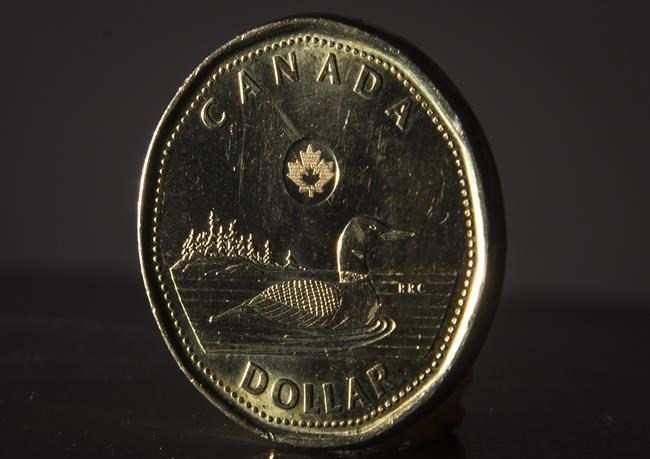TORONTO — North American stock markets gyrated midweek after the U.S. Federal Reserve raised interest rates and pointed to six more hikes this year as inflation is expected to remain hot while economic growth is forecast to slow.
Markets plunged after the central bank announced after 2 p.m. that rates could increase faster than some had expected, but rallied higher once chairman Jerome Powell insisted the moves were not guaranteed.
"I think that the market liked to hear that ... Powell once again said that nothing is written in stone, every meeting is live, and we're digesting the economic data as we move forward," said Allan Small, senior investment adviser at IA Private Wealth.
The central bank expects inflation to remain elevated and end 2022 at 4.3 per cent. That's far above the Fed's two per cent annual target. Officials also now forecast much slower economic growth this year, of 2.8 per cent, down from its four per cent estimate in December.
Still, Powell said the underlying U.S. economy is very strong with more job openings than people to fill them.
"And even if rate hikes start to slow down the labour market, which is the fear that some have, he's saying they have more than enough capacity to handle that," Small said in an interview.
The S&P/TSX composite index closed up 280.99 points to 21,468.83, after nearly wiping out all the morning gains by hitting an intraday low of 21,190.14.
In New York, the Dow Jones industrial average was up 518.76 points at 34,063.10. The S&P 500 index was up 95.41 points at 4,357.86, while the Nasdaq composite was up 487.93 points or 3.8 per cent at 13,436.55.
Materials was the lone sector to fall on the TSX, moving lower with a further reversal of gold prices.
The April gold contract was down US$20.50 at US$1,909.20 an ounce and the May copper contract was up 8.8 cents at US$4.60 a pound.
The Toronto market enjoyed a broad rally with seven of the 10 sectors that increased on the day rising by at least 1.5 per cent.
Technology rose 6.0 per cent despite a further increase in bond yields with Shopify Inc. gaining 11.6 per cent and Nuvei Corp. up 10.5 per cent.
Small said it never made sense to him that good quality tech names were falling because inflation was higher and interest rates had to rise.
"I've been buying them up because to me these things got stupid cheap as far as I'm concerned and they would reverse at some point," he said.
Canopy Growth Corp. increased 8.0 per cent to push the health-care sector up 4.8 per cent, while consumer discretionary increased 2.8 per cent and consumer staples was up 1.8 per cent with Alimentation Couche Tard Inc. up 6.1 per cent after posting strong quarterly results.
Air Canada shares climbed 7.0 per cent to push industrials higher while the heavyweight financials sector increased 1.5 per cent as the major banks and insurance companies responded favourably to higher rates.
Even energy rose despite a further decrease in crude oil prices.
The April crude oil contract was down US$1.40 at US$95.04 per barrel and the April natural gas contract was up 18 cents at US$4.75 per mmBTU.
The Canadian dollar traded for 78.61 cents US compared with 78.11 cents US on Tuesday.
Oil prices have plunged 27 per cent since rising to nearly US$130 per barrel eight days ago.
Wednesday's decrease came on signals of progress in peace talks between Russia and Ukraine.
Falling crude prices is good for everyone except investors that own oil stocks, Small said.
"Everybody else in the world, if you don't own oil stocks, you want prices to fall."
He said the best investment strategy during volatility like that exhibited Wednesday is to have diversified portfolios.
"Diversify, diversify, that to me today is the key to everything. If you stay diversified but still stay in this market, which is the key ... I think that is the recipe for success."
This report by The Canadian Press was first published March 16, 2022.
Companies in this story: (TSX:SHOP, TSX:NVEI, TSX:ATD.B, TSX:WEED, TSX:AC, TSX:GSPTSE, TSX:CADUSD=X)
Ross Marowits, The Canadian Press

